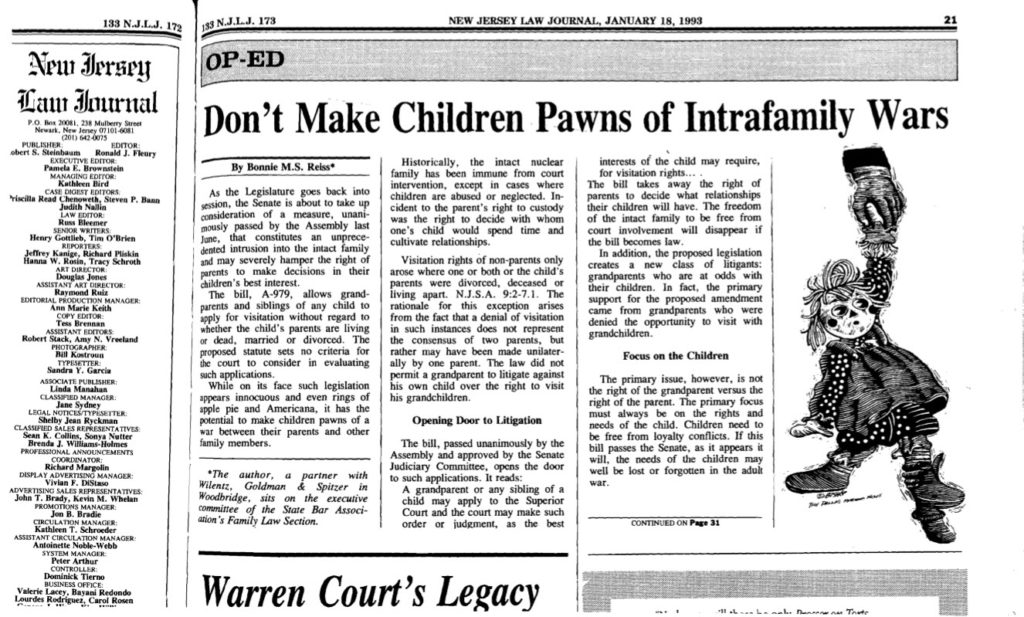As the Legislature goes back into session, the Senate is about to take up consideration of a measure, unanimously passed by the Assembly last June, that constitutes an unprecedented intrusion into the intact family and may severely hamper the right of parents to make decisions in their children’s best interest.
The bill, A-979, allows grandparents and siblings of any child to apply for visitation without regard to whether the child’s parents are living or dead, married or divorced. The proposed statute sets no criteria for the court to consider in evaluating such applications. While on its face such legislation appears innocuous and even rings of apple pie and Americana, it has the potential to make children pawns of a war between their parents and other family members.
Historically, the intact nuclear family has been immune from court intervention, except in cases where children are abused or neglected. Incident to the parent’s right to custody was the right to decide with whom one’s child would spend time and cultivate relationships.
Visitation rights of non-parents only arose where one or both or the child’s parents were divorced, deceased or living apart. N.J.S.A. 9:2-7.1. The rationale for this exception arises from the fact that a denial of visitation in such instances does not represent the consensus of two parents, but rather may have been made unilaterally by one parent. The law did not permit a grandparent to litigate against his own child over the right to visit his grandchildren.
Opening Door to Litigation
The bill, passed unanimously by the Assembly and approved by the Senate Judiciary Committee, opens the door to such applications. It reads:
A grandparent or any sibling of a child may apply to the Superior Court and the court may make such order or ludgment, as the best interests of the child may require, for visitation rights….
The bill takes away the right of parents to decide what relationships their children will have. The freedom of the intact family to be free from court involvement will disappear if the bill becomes law.
In addition, the proposed legislation creates a new class of litigants: grandparents who are at odds with their children. In fact, the primary support for the proposed amendment came from grandparents who were denied the opportunity to visit with grandchildren.
Focus on the Children
The primary issue, however, is not the right of the grandparent versus the right of the parent. The primary focus must always be on the rights and needs of the child. Children need to be free from loyalty conflicts. If this bill passes the Senate, as it appears it will, the needs of the children may well be lost or forgotten in the adult war.
Read or download the complete article here:

